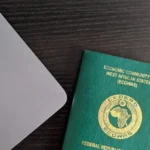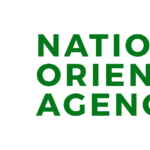As the federal government steps up the goal of identifying every citizen in the country, the Director-General of the National Identity Management Commission (NIMC), Engr. Aliyu Aziz, in this interview, speaks on why Nigerians must have their National Identity Numbers (NINs).
What is the total NIN enrolment so far?
The federal government statement was first made in 2018 upon the Federal Executive Council’s approval of the strategic roadmap for accelerating digital identity projects using the ecosystem approach. The target of year 2022 was on the premise of partnership with public and private sector agencies to support the commission in data capturing services and making NIN enrolment centres easily accessible to the people.
The total enrolment and successfully generated NIN is 51 million. You of course know that in late December 2020, we reported a figure of 43m NINs issued. So, we have added additional 7m records between December 2020 and March 2021. The commission is still working tirelessly to populate the database and has licensed over 203 agents for the intervention enrolment drive of the government.
With the directive last December on NIN-SIM linkage, how did your agency manage the surge in traffic with initially just 1,000 centres?
First, the NIN-SIM integration is a policy of the Federal Government of Nigeria through the Ministry of Communications and Digital Economy due to the improper registration of SIMs. So, the directive complied with the NIMC Act 2007 and Regulations 2017. On the issue of the COVID-19 protocols, the commission works with relevant government agencies such as the Nigeria Centre for Diseases Control (NCDC) and the Presidential Task Force on COVID-19 to ensure compliance within and around our office premises and special centres.
It is pertinent to state that the NIMC received support from donors such as Red Cross, Dantata, World Bank, Ministry of Communications and Digital Economy etc for the provision of Personal Protective Equipment (PPE).
To reduce the crowd besieging our offices for enrolment, the commission introduced a number booking system which allows only persons who have been pre-booked for a particular day to visit our offices; this system took effect from December 30, 2020. We also encouraged NIN application through the pre-enrolment portal on the NIMC official web page.
It is projected that by the end of the first quarter of 2021, given the speed at which our licensed enrolment vendors set up, especially the telcos, the existing 1000 enrolment centres would have been tripled.
It’s said that NIMC is slow in enrolling applicants, what are the challenges?
NIMC started enrolment and issuance of NIN in 2012 (over nine years ago) and our enrolment and registration centres have been functional and open all year round to provide identity services to the general public. It is quite unfortunate that a large number of citizens and legal residents did not take advantage of those years to enrol for their NIN. Based on the above, it is unfair to state that NIMC is slow in enrolling Nigerians. What you are witnessing is a sudden surge of applicants showing up for enrolment because of the SIM-NIN linkage deadline.
The federal government is fully aware of the challenges and doing its best to resolve them especially in the area of power supply, broadband connectivity, awareness and sensitisation etc.
NIMC commenced diaspora enrolment last year. How far have you gone with this?
Our diaspora enrolment commenced in April 2019 and tremendous progress has been made in the enrolment and issuance of NIN to Nigerians in the diaspora.
We have started enrolment operations in about 16 countries where we have successfully licensed private sector companies to partner with us. The countries include Austria, Benin Republic, Canada, China, Ghana, Germany, India, Ireland, Italy, Saudi Arabia, Senegal, South Africa, Togo, United Arab Emirates, United Kingdom and the United States of America. In some countries, we have offices in two or more cities, depending on the location preference of the licensed agents.
The commission is working to license more partners and expand diaspora enrolment to more countries. For Nigerians abroad who have enrolled and have their NINs, they should visit the website of telcos for specific instructions on how to submit or link their SIM with the NIN.
It is claimed that billions of Naira has been spent on NIMC with little to show on identity card issuance and the NIN enrolment, what is your view on this?
The commission has institutionalised accountability and probity in its financial dealings. All budgetary allocations and releases to the commission can be verified from the Budget Office of the Federation and the Accountant General’s Office. We should speak with facts and these facts are easily accessible to everyone.
Since 2007 when NIMC was established, the commission has made it a duty to publish its annual financial statement and audited accounts. There you can find total appropriated funds and actual releases to the commission since inception. I want to encourage the general public, including members of the media, to visit the NIMC website to read and fully understand the project and what we are doing.
What is the update on the $433 million World Bank loan for the Digital Identity Ecosystem project?
Since the approval of the strategic roadmap for the digital identity project by the FEC in September 2018, a lot has happened with the development partners’ board approval of the loans and the Federal Government of Nigeria’s approval of the financing agreement between Nigeria and the development partners.
The funds which will be domiciled in the Accountant General’s office is subject to certain effective conditions to the financing agreement one of which is the enactment of a Data Protection Law in Nigeria, which primarily seeks to establish an effective regulatory framework for the protection of personal data, regulate the processing of information concerning data subjects and safeguarding their fundamental rights.
Not the entire $433 million is to be expended on increasing the number of registration centres and NIN issuance. Other components stand to be strengthened from the funds including supporting the usage of digital ID, etc.

 Join Daily Trust WhatsApp Community For Quick Access To News and Happenings Around You.
Join Daily Trust WhatsApp Community For Quick Access To News and Happenings Around You.


